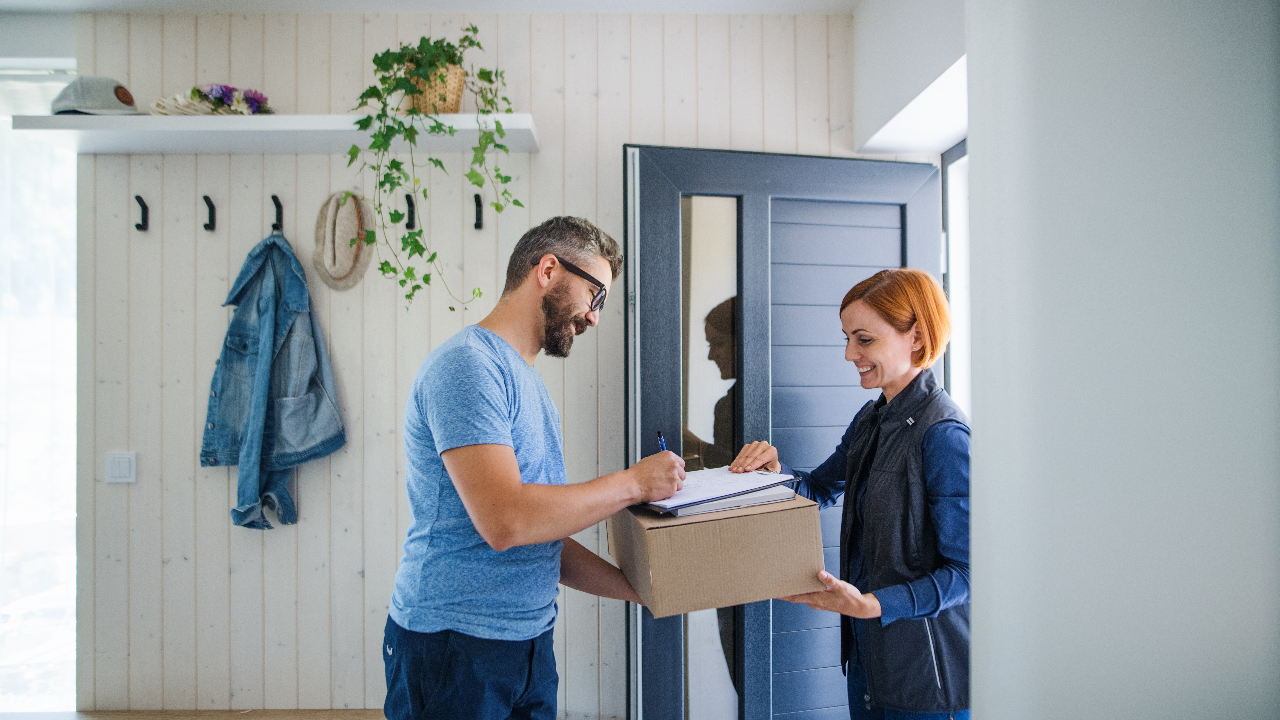How you can help small businesses impacted by COVID-19

At the beginning of the coronavirus pandemic, Brittany and Craig Franey, part owners of FS Food Group in Charlotte, NC, were forced to quickly come up with a plan to keep their restaurants running and some of their staff employed.
Through their community Facebook page, they started offering family dinner deals from one of the handful of restaurants the Franeys help to run and own.
“So many of our neighbors mentioned how much they love Midwood Smokehouse, and with the close-knit community we’re in, we thought that if we just deliver the food to our community, they could just come pick it up,” explained Craig Franey in an interview with Bankrate.
Despite the impressive ingenuity of the Franey’s during this time, the impact to their business, along with millions of other small business owners and employees across the country, from COVID-19 is shocking.
According to the National Restaurant Association, despite gains in the immediate aftermath of government-mandated lockdowns, restaurant industry sales and job growth have been sluggish, with most operators saying they feel business conditions worsened last month.
“Looking ahead, most restaurant operators do not anticipate a rapid return to normal. Seventy-one percent of full service operators say they do not expect their restaurant’s sales to return to pre-coronavirus levels within the next six months. Fifty-four percent of their limited-service counterparts report similarly.”
While the current situation is a far cry from the more than 6.6 million people who filed for first-time unemployment in the last week of March 2020, many Americans still find themselves at an unprecedented crossroad. Indeed, jobless claims were higher than expected in September, averaging over 800,000 new claims per week.
Meanwhile, according to a survey from the U.S. Chamber of Commerce, 48 percent of small-business owners who laid off employees at the beginning of the pandemic say it could be three months to a year before they anticipate rehiring.
Despite some recovery, many of us are still feeling the personal and financial impact of the shutdowns due to COVID-19. And, if you aren’t personally impacted, odds are you know somebody who is. While we are all separated by social distancing measures, as a nation we are in this fight together. By remaining loyal to your favorite local shops and restaurants, you can help your community continue to thrive through times of hardship.
How you can help your local small businesses
Order Takeout
For many Americans, the front line in the fight against coronavirus is taking place on the couch from the safety of our own home. As many continue to practice social distancing to limit the spread of the virus, restaurants small and large are placing new emphasis on take-out or delivery.
One simple way that you can help your favorite local restaurant is to order their food for delivery or curbside pickup. You can do this safely from your own home (either through a popular food delivery app or over the phone), and it’s vital to keeping local restaurants alive until things return to normal.
Ordering food delivery from local restaurants not only helps support small business owners but also allows them to keep more of their staff employed.
Indeed, according to a report this month from the National Restaurant Association, 43 percent of full service operators say that if business conditions continue at current levels, it is unlikely their restaurant will still be in business six months from now. A large portion of limited-service operators agree, with one-third saying they likely won’t survive another six months if things stay as they are.
Harrowing statistics such as these highlight another way you can directly support local restaurants and employees: tip a little more than usual.
Of course, ordering delivery or tipping extra is not possible for all Americans. If you’ve been laid off or temporarily can’t work due to the coronavirus, then you understandably can’t spend extra money on takeout and extra tips. But, if you’re still employed, consider paying it forward to the millions of Americans who don’t have the same options.
It’s not just more costly for the customer. According to Craig, the change to their business has added roughly 10 percent to their overhead cost. He explained, “There is a higher overhead cost to run our business differently, but we’re not passing the cost off to the customer, so we’re having to suck up the additional cost to keep the business afloat during this time.”
If you’re interested in ordering more takeout to support your favorite local restaurant and want to earn rewards in the process, there are a number of cash back cards that offer bonus rewards on dining and takeout. Here are our picks for the best credit cards to use for food purchases.
Order Online
If your favorite local business is a shop rather than a restaurant, you may wonder how you can help them while stuck at home. A simple way you can do this is to shop at your local store online as you normally would at their brick-and-mortar location.
While it may seem easier to just click that two-day delivery option on Amazon Prime, consider taking a moment to search online for the same item from a local retailer.
If the shop does not have an existing online platform, think about reaching out to them to see how they are continuing to conduct business during the coronavirus lockdown. Many small businesses are transferring their sales to online marketplaces like Etsy and Facebook Marketplace if they don’t have an existing website.
Buy Gift Cards
If you can’t shop with your local store or restaurant online, then consider purchasing a gift card from a small business to help boost their immediate cash flow. A gift card is a great way to help local businesses now and you will have the added benefit of being able to use it down the road when life has returned to normal.
If you are purchasing the gift card with a credit card, it is important to know that the rewards you earn on the purchase will reflect where you bought the gift card. For example, if you buy a gift card to a local restaurant, it will count as a restaurant rewards point (if your card offers them). But, if you are looking to score some restaurant rewards points and you buy, say, an Olive Garden gift card from a grocery store, it will count as a grocery purchase on your credit card, not a restaurant purchase.
Consider continuing to pay (even if services are temporarily unavailable)
If you typically pay a business monthly or even weekly (such as a local gym, personal trainer, or home cleaning service) consider still paying them as if you were using the service.
Again, if you are in a tough financial situation, this may not be possible. But, if you have the means, consider the fact that canceling your payment for a personal training session or home cleaning may take away the only income that the contractor in question receives.
Continuing to pay workers who depend on hourly commission is a direct way that you can impact and aid individuals and small businesses in the wake of the coronavirus.
Final Thoughts
As we all continue to adapt to a new reality, the best way that we can keep ourselves safe and support small businesses is to consciously shop local (online or over the phone) when possible.
Yes, it may not always be the most convenient – you might have to wait a little longer or pay a little more than you would at a big-box retailer. But, as the country struggles to overcome a once-in-a-century pandemic, practicing patience and empathy and support towards our neighbors is paramount to our recovery as a nation. A decision as small as purchasing a gift card from your favorite local restaurant could make all the difference to the owners of the restaurant and the employees who count on them for income.
For more information, visit the United States Chamber of Commerce guide for small businesses during the coronavirus outbreak.
You may also like

Study: The top 10 states for small businesses

What is Small Business Saturday?

Beyond Small Business Saturday: Sustaining support

How to support small businesses after a disaster

